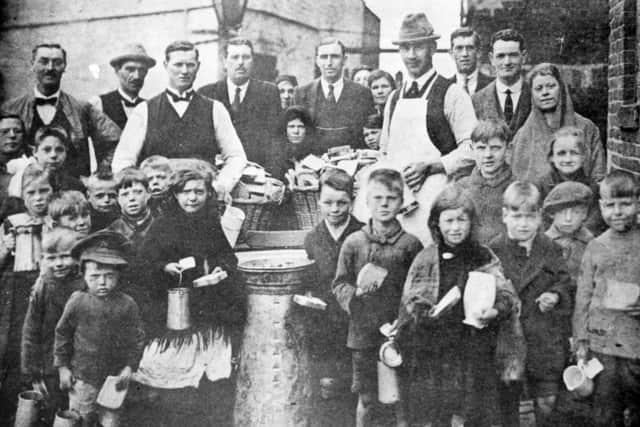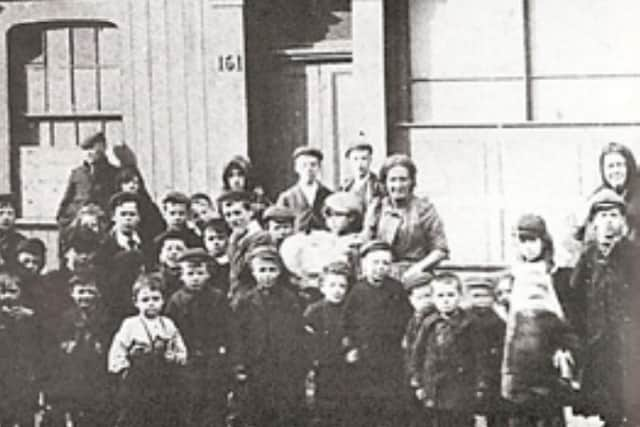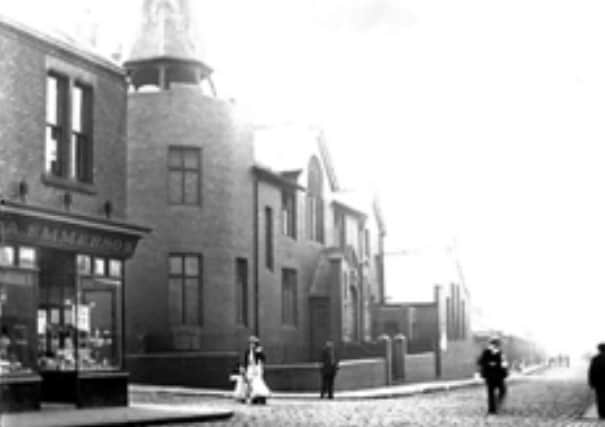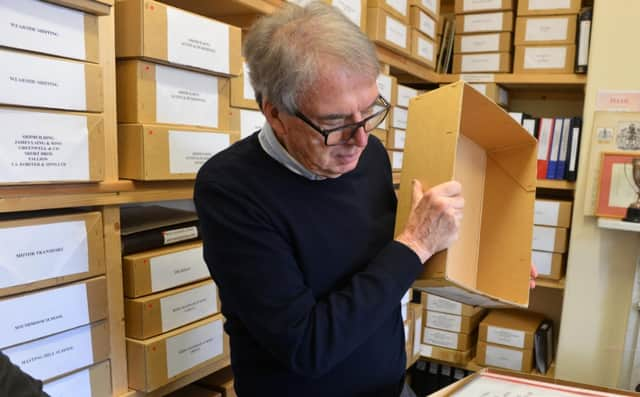When Sunderland's starving children ate 16 stone of bread a day
This article contains affiliate links. We may earn a small commission on items purchased through this article, but that does not affect our editorial judgement.
and live on Freeview channel 276
Imagine a time when your whole daily diet was half a pound of jam and bread.
That's half a loaf per day.
The children of Sunderland were eating it to stave off starvation in the early 1900s.
Advertisement
Hide AdAdvertisement
Hide AdLife was so tough that children would turn up at soup kitchens with cracked cups - just so they could get a cup of coffee to go with it.
Philip Curtis, from Sunderland Antiquarian Society, tells us more.
Sunderland suffered some harsh winters early in the 20th century.
To make matters worse, many Wearside families had no-one earning a wage.
Advertisement
Hide AdAdvertisement
Hide AdThe only option was to turn to the generosity of locals and Wearside 'people power' did its bit to help.
Half a pound of jam and bread
The Monkwearmouth Bairns’ Fund was set up and in December 1907, it was providing 700 breakfasts in the Salvation Army in Roker Avenue.
The same month, the Deptford and Ayres Quay Breakfast Fund began providing a free daily breakfast at Simpson Street School for over 500 children.
It was a mammoth task which entailed 80 gallons of coffee and 16 stone of bread being given out daily.
Advertisement
Hide AdAdvertisement
Hide AdEach child had to bring their own mug and it was reported that some arrived with pint pots.


Workers gave money out of their pay
Others had milk jugs capable of holding a pint and many only had battered tin mugs or cracked cups.


Most of the children sat on the floor with a jam sandwich and coffee. It was estimated that there was almost half a pound of bread to each sandwich.
On Saturdays tea cakes took the place of the jam and bread.
To cover the cost, collecting boxes were distributed around pubs and businesses gave donations.
Advertisement
Hide AdAdvertisement
Hide AdCast-off clothing was given to the needy
Workmen at Laing’s shipyard arranged a weekly subscription and at Wesley Hall in Trimdon Street, a soup kitchen was set up during the winter of 1907.


Every Tuesday, Thursday and Saturday, 75 gallons of soup with bread were distributed.
Regular appeals went out for peas, rice, lentils, bones and bread to be sent to the hall on Mondays, Wednesdays or Fridays. Cast-off clothing was also requested.
A plea for peas, rice and bones
There was a soup kitchen at the London Tavern in Sunderland Street where the landlord fed over 1000 children.
Advertisement
Hide AdAdvertisement
Hide AdIf that wasn't enough, freezing blizzards arrived and many of the poor Wearside families could not afford coal to keep their fires going.
Help came from workers at T.S. Forster’s who all agreed to pay one penny a week to the coal fund. Mr Forster himself promised to add 25% to whatever the men paid.
In an attempt to raise public awareness to the appeal a number of desperate cases of need were publicized.
Father of nine was reduced to tears
One of these involved a man who had nine children and had been out of work for ten weeks. When coal tickets were given to him tears ran down his cheeks.
Advertisement
Hide AdAdvertisement
Hide AdIn another case, a family including three children and an unemployed father had to leave their cottage and move into a cellar, which was rent free.
It was in a deplorable condition and had a stone floor. The charity was a godsend.
Find out more at the heritage centre
Breakfasts, coal and relief funds helped the Wearside poor survive the harsh winters of the early 1900s.
Wearsiders rallied and donations to the funds from the business section of the town were usually very good and always very welcome. Thanks to Philip and the Antiquarian Society for the story.
Advertisement
Hide AdAdvertisement
Hide Ad

Find out more about the society by getting along to its Heritage Centre which is open in Douro Terrace on Wednesdays and Saturdays from 9.30am to 12pm.
You can also visit the Antiquarian Society’s Facebook page or its website which is at http://www.sunderland-antiquarians.org
And to apply to become a member, email [email protected]
Comment Guidelines
National World encourages reader discussion on our stories. User feedback, insights and back-and-forth exchanges add a rich layer of context to reporting. Please review our Community Guidelines before commenting.